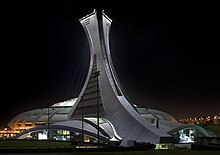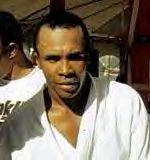
The Summer Olympic Games, also known as the Summer Olympics or the Games of the Olympiad, is a major international multi-sport event normally held once every four years. The inaugural Games took place in 1896 in Athens, Greece, and the most recent was held in 2024 in Paris, France. This was the first international multi-sport event of its kind, organized by the International Olympic Committee (IOC) founded by Pierre de Coubertin. The tradition of awarding medals began in 1904; in each Olympic event, gold medals are awarded for first place, silver medals for second place, and bronze medals for third place. The Winter Olympic Games were created out of the success of the Summer Olympic Games, which are regarded as the largest and most prestigious multi-sport international event in the world.

The 1976 Summer Olympics, officially known as the Games of the XXI Olympiad and officially branded as Montreal 1976, were an international multi-sport event held from July 17 to August 1, 1976, in Montreal, Quebec, Canada. Montreal was awarded the rights to the 1976 Games at the 69th IOC Session in Amsterdam on May 12, 1970, over the bids of Moscow and Los Angeles. It is the only Summer Olympic Games to be held in Canada. Toronto hosted the 1976 Summer Paralympics the same year as the Montreal Olympics, also the only Summer Paralympics to be held in Canada. Calgary and Vancouver later hosted the Winter Olympic Games in 1988 and 2010, respectively. This was the first of two consecutive Olympic games held in North America, followed by the 1980 Winter Olympics in Lake Placid.
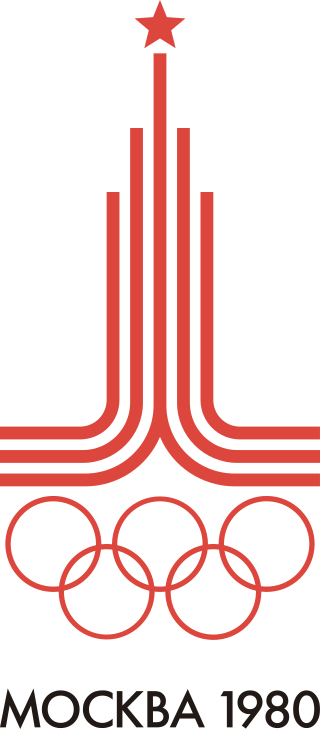
The 1980 Summer Olympics, officially known as the Games of the XXII Olympiad and officially branded as Moscow 1980, were an international multi-sport event held from 19 July to 3 August 1980 in Moscow, Soviet Union, in present-day Russia. The games were the first to be staged in an Eastern Bloc country, as well as the first Olympic Games and only Summer Olympics to be held in a Slavic language-speaking country. They were also the only Summer Olympic Games to be held in a self-proclaimed communist country until the 2008 Summer Olympics held in China. These were the final Olympic Games under the IOC Presidency of Michael Morris, 3rd Baron Killanin before he was succeeded by Juan Antonio Samaranch shortly afterward.

The 2004 Summer Olympics, officially known as the Games of the XXVIII Olympiad, were a summer multi-sport event held in Athens, the capital city of Greece, from 13 to 29 August 2004. A total of 10,625 athletes from a record 201 countries represented by National Olympic Committees (NOC) participated in these games. The games featured featured 301 events in 28 sports and 39 disciplines, including the Olympic debuts of women's wrestling and women's sabre. Kiribati and Timor Leste competed for the first time in these Olympic Games. It was the second time after 1896 that Athens had hosted the Summer Olympics in the modern era.
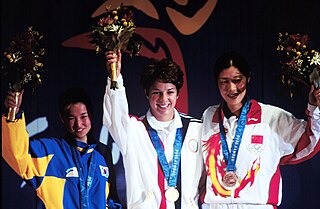
The 2000 Summer Olympics, officially known as the Games of the XXVII Olympiad, were a summer multi-sport event held in Sydney, New South Wales, Australia, from 15 September to 1 October 2000. A total of 10,651 athletes from 199 nations represented by National Olympic Committees (NOCs), including the Olympic debuts of Eritrea, Micronesia and Palau. The games featured 300 events in 28 sports across 39 disciplines, including the debuts of synchronized diving, taekowndo, triathlon, trampolining, women's modern pentathlon and women's weightlifting as official Olympic medal events.

The 1980 Summer Olympics, officially known as the Games of the XXII Olympiad, were an international multi-sport event held in Moscow, Soviet Union, from 19 July to 3 August. They were the first Olympic Games to be staged in a communist nation. A total of 5,179 athletes representing 80 National Olympic Committees (NOCs) participated. This was the fewest number of participating NOCs since 1956, which included seven teams making their Olympic debut at the Summer Games; Angola, Botswana, Cyprus, Jordan, Laos, Mozambique, and Seychelles. The games featured 203 events in 21 sports across 27 disciplines.

The 1972 Summer Olympics, officially known as the Games of the XX Olympiad, were a summer multi-sport event held in Munich, West Germany, from 26 August through 11 September 1972. 7,134 athletes representing 121 National Olympic Committees (NOCs) participated. The games featured 195 events in 21 sports across 28 disciplines.

The 1968 Summer Olympics, officially known as the Games of the XIX Olympiad, were an international multi-sport event held in Mexico City, from 12 to 27 October. A total of 5,516 athletes from 112 nations participated in 172 events in 18 sports across 24 different disciplines. These were the first games to be held in Latin America.
The 1960 Summer Olympics, officially known as the Games of the XVII Olympiad, were a summer multi-sport event held in Rome, Italy, from August 25 to September 11, 1960. A total of 5,338 athletes from 83 countries represented by National Olympic Committees (NOCs) participated in these Games, competing in 150 events in 17 sports.

The 1956 Summer Olympics, officially known as the Games of the XVI Olympiad, and officially branded as Melbourne 1956, were an international multi-sport event held from 22 November to 8 December in Melbourne, Australia, with the equestrian events being held from 10 to 17 June 1956 in Stockholm, Sweden, due to Australian quarantine regulations that required a six-month pre-shipment quarantine on horses. Medals awarded in these cities bore different designs. A total of 3,314 athletes representing 72 National Olympic Committees (NOCs) participated, which was a record for the most NOCs at a single Olympics at the time. This figure included first-time entrants Cambodia, Ethiopia, Fiji, Kenya, Liberia, Malaya, North Borneo, and Uganda. The games featured 151 events in 17 sports across 23 disciplines.
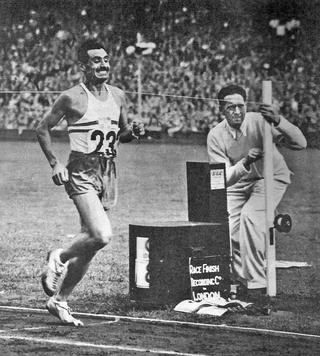
The 1948 Summer Olympics was an international multi-sport event held from July 29 through August 14, 1948, in London, United Kingdom. It was the first Olympic Games to take place in twelve years, due to the Second World War, with London being chosen as the host city in May 1946.

The 1936 Summer Olympics, officially known as the Games of the XI Olympiad, was an international multi-sport event held in Berlin, Germany, from 1 August to 16 August.
The 1932 Summer Olympics, officially known as the Games of the X Olympiad, was an international multi-sport event held in Los Angeles, California, United States, from July 30 to August 14.
This 1928 Summer Olympics medal table comprises two tables of countries ranked by the number of medals won during the 1928 Summer Olympics.

The 1904 Summer Olympics were held in St. Louis, Missouri, United States from July 1 to November 23, 1904, as part of the St. Louis World's Fair.

The 1976 Winter Olympics, officially known as the XII Olympic Winter Games, was a winter multi-sport event held in Innsbruck, Austria, from 4 to 15 February 1976. A total of 1,123 athletes representing 37 National Olympic Committees (NOC) participated in 37 events from 10 different sports and disciplines. Two events were contested for the first time: the figure skating discipline of ice dancing, and the men's 1,000 metres in speed skating.

The all-time medal table for all Olympic Games from 1896 to 2024, including Summer Olympic Games, Winter Olympic Games, and a combined total of both, is tabulated below. These Olympic medal counts do not include the 1906 Intercalated Games which are no longer recognized by the International Olympic Committee (IOC) as official Games. The IOC itself does not publish all-time tables, and publishes unofficial tables only per single Games. This table was thus compiled by adding up single entries from the IOC database.

The 2010 Winter Olympics, officially known as the XXI Olympic Winter Games, was a winter multi-sport event held in Vancouver, British Columbia, Canada, from February 12 to February 28. A total of 2,632 athletes representing 82 National Olympic Committees (NOCs) participated in 86 events from 15 different sports and disciplines.

The men's eight competition at the 1976 Summer Olympics took place at the rowing basin on Notre Dame Island in Montreal, Quebec, Canada. It was held from 18 to 25 July and was won by the team from East Germany. It was East Germany's first victory in the event, improving on a bronze medal in 1972. The defending champions, New Zealand, switched places with the East Germans, taking bronze in 1976. Between them was Great Britain, taking its first men's eight medal since 1948. There were 11 boats from 11 nations, with each nation limited to a single boat in the event.
